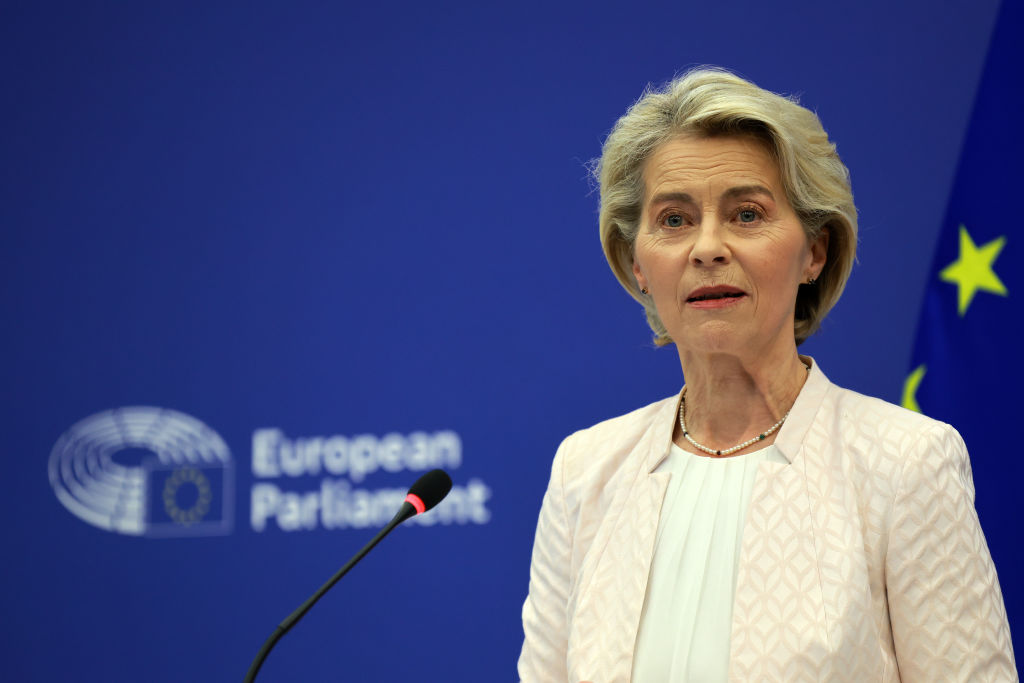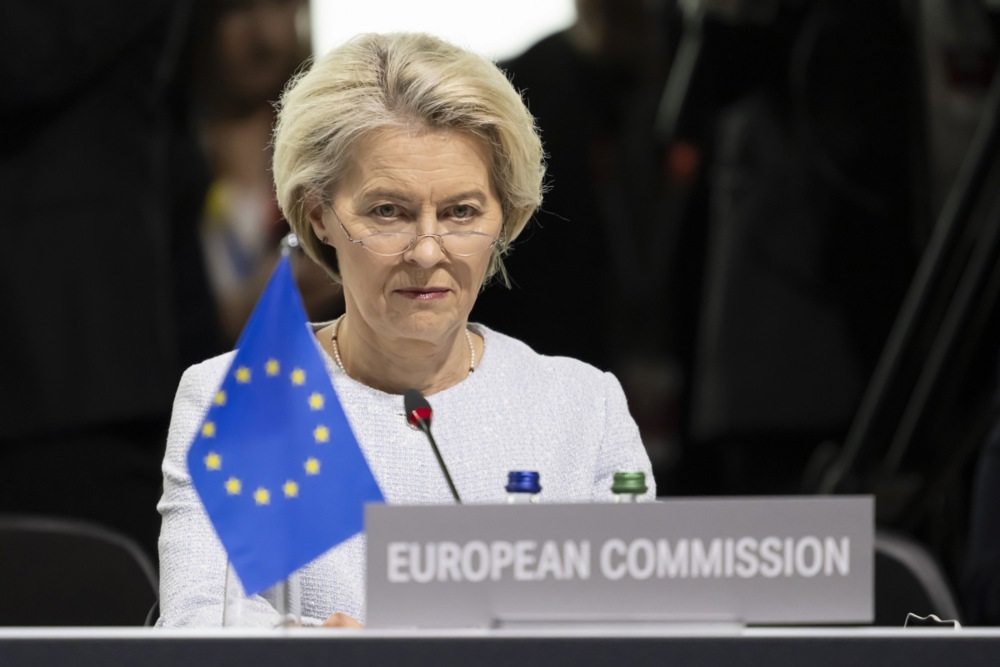In unveiling her new European Commission team, Ursula von der Leyen has asserted her political authority on Brussels.
After a round of negotiations with member states, culminating in the last-minute ousting of France’s outgoing Commissioner Thierry Breton, von der Leyen appeared to have won a high-stakes power struggle with national leaders over the shape of the new Commission.
Among von der Leyen’s successful battles was forcing Slovenia’s Prime Minister Robert Golob to replace his male nominee with a female candidate, Marta Kos.
“The Slovenian government is solely responsible for the delay and difficulties in forming the commission, as Robert Golob bowed to the wishes of the VDL at the last moment and withdrew his candidate. With this, he damaged the reputation of Slovenia and did not protect the sovereignty that we have as a member of the EU,” said Romana Tomc, an MEP from the Slovenian Democratic Party, on X.
Von der Leyen also attempted to pressure the Maltese government to withdraw Glenn Micallef’s candidature, the Times of Malta reported.
Both moves formed part of her drive to construct a gender-balanced Commission, as she highlighted in a press conference.
“We now have eleven women in the College I propose today. That is 40 per cent,” she said.
“When I received the first set of nominations and candidates, we were on track for around 22 per cent women and 78 per cent men. That was unacceptable. So I worked with the Member States, and we were able to improve the balance to 40 per cent women and 60 per cent men”.
Out of six vice-presidents in the new European Commission, four are women: Terasa Ribera (who replaces high-profile competition czar Margrethe Vestager), Henna Virkkunen, Roxana Minzatu, and Kaja Kallas.
But Von der Leyen still had a lengthy battle ahead before her nominations picks were confirmed.
Before the new Commissioners assume their roles, the European Parliament considers each of the Commissioners. They also must win the support of two-thirds of MEPs in the committees corresponding to their portfolios.
According to MEP Romana Tomc, Slovenia’s EPP delegation in the European Parliament does not support Marta Kos’s nomination.
Competitiveness will form the backdrop of her new commission, von der Leyen told reporters at the September 17 press conference in Strasbourg.
“The whole college is committed to competitiveness! We have dissipated the former rigid stovepipes,” she declared.
This new mission for the European Commission sparked criticism from more left-wing MEPs.
Hard-Left MEPs Aubry condemned the Commission’s new priorities, claiming von der Leyen had replaced the Green Deal with an obsession for “competitiveness” while sidelining pressing issues like poverty and improving people’s daily lives.
She also condemned Von der Leyen’s nomination of ECR member Raffaele Fitto as Commissioner for Reform and Vice-President.
“In substance, the new Commission will be the most right-wing in history with, for the first time, a far-right vice-president,” she said.
? A la conférence exceptionnelle des Présidents de groupe, @vonderleyen donne moins d'infos aux élus qu'à la presse, illustration du mépris pour notre parlement.
Sur le fond, sa nouvelle Commission sera la plus à droite de l'histoire avec pour la 1ère fois un vice-président…
— Manon Aubry (@ManonAubryFr) September 17, 2024





